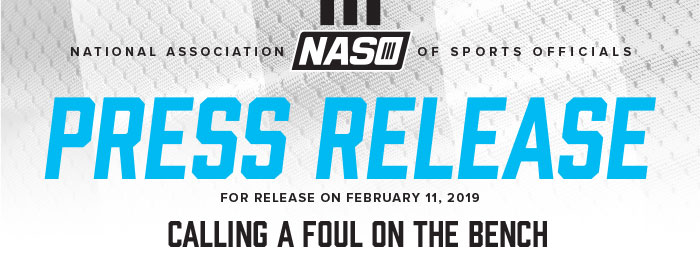
On February 8, 2019, in Racine, Wis., Circuit Court Judge Michael J. Piontek became a replay official, where replay is not permitted, and chose to override the decision of a high school wrestling official on the mat.
Piontek issued an injunction to block a suspension the Wisconsin Interscholastic Athletic Association (WIAA) issued by rule to a Waterford, Wis., wrestler after the wrestler’s parents filed a lawsuit questioning the official’s judgment and the WIAA’s penalty administration.
(For more on the case: https://journaltimes.com/sports/high-school/judge-overrules-wiaa-halter-gets-to-wrestle/article_a2ba5501-a083-5152-9c0e-7b3039f41608.html)
According to the Racine Journal Times, Piontek said the official’s unsportsmanlike conduct ruling would be “taking away (the wrestler’s) right for celebration,” and “it looks like (the wrestler) was looking at his dad to me,” and, “I heard no profanity and saw no taunting.” The judge made those statements after viewing one video from one angle with unintelligible audio and after the official testified to what happened.
Barry Mano, NASO President, said, “Judge Piontek played armchair referee and the consequences, if left unchecked and unchallenged, will bring uncertainty and loss of belief in the outcomes of high school contests. Imagine how many aggrieved parents/fans will now consider using the court system to challenge a referee’s judgment call. Not hard to fathom where this will lead. Sports and the courts will become more than just phraseology. As an aside, it is worth noting that historically, courts have been loath to engage themselves in judgment calls made by officials. They have done that for good reason.”
Alan Goldberger, sports law attorney from Florham Park, N.J., and author of Sports Officiating: A Legal Guide said, “The reluctance of courts to overturn or reverse game officials’ calls dates back more than 80 years in the United States. Even a number of supreme courts and other appellate courts have consistently declined to act as a postgame ‘referee’ to overturn a game official’s decision. Sports are intended to be played and results achieved on the field, for some very persuasive reasons: If judges had the authority to replace the game official’s judgment with their own for one call in one game, they could be called up on to do the same thing for any call in any game. If games are open to interpretation by judges and altering of calls made during a game, how would judges decide such cases?”
In the Racine case, the wrestling referee is an NASO member and has NASO’s robust “Game Call” Insurance coverage, which defends officials when legal matters arise based on contest rulings. Game Call coverage includes attorney defense costs. Mano said, “While it is sad sports officials have to consider such matters in today’s society, we are glad NASO provides that protection to its members.”
Mano added: “NASO stands in support of the WIAA and Wisconsin’s sport officials and urges the WIAA to appeal this matter for the greater good of all officials and high school athletics.”
Contact: Dave Simon
Associate Editor
Referee Magazine/National Association of Sports Officials
dsimon@referee.com
The National Association of Sports Officials is the world’s largest organization for sports officials at every level and all sports. More than 29,000 sports officials from around the world belong to NASO, enjoying member benefits and supporting an organization that advocates for sports officials and that helps them maintain the highest level of officiating skills.
###


